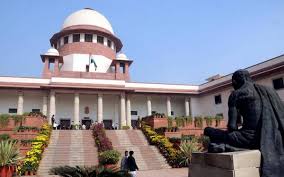Latest News
Swapnil Tripathi v Supreme court of India

The present situation of judiciary due to the COVID-19 is totally unprecedented but the only thing that is able to help judiciary to deal with important cases is video conferencing, since it is impossible to run courts, when the cases of COVID-19 are increasing day by day. Although in present scenario this video conferencing can only be seen the respective lawyer and the client but sooner or later this will be made available to general public and the credit to this goes to the case Swapnil Tripathi v Supreme Court of India. Although it is limited to those cases which have constitutional and national importance and which affects the public at large.
Swapnil Tripathi, an advocate graduated from National Law University, Jodhpur took the step ahead towards making judiciary more transparent by filing a petition requesting live streaming of cases having constitutional or national importance. The case was decided by a three-judge bench including the then CJI Justice Dipak Mishra , Justice D.Y Chandrachud and Justice A M Khanwilkar.
Swapnil Tripathi while arguing mentioned the name of many countries which have policies and guidelines for the live streaming of court proceedings also he mentioned that this step will make the public more aware about constitutional changes in the country.
Judgement
The bench accepted that the cases which have constitutional or national importance shall be made available to general public. Not only the bench accepted the idea of live streaming of those cases but also left the ground open for other cases. The bench also laid the guidelines that are to be taken care of while streaming of the cases and the bench believed that this step will bring light to the fundamentals of open justice , access to public information , transparency in the judiciary.
Reasons pointed out by the bench for live streaming of the cases.
- The technology of live-streaming injects radical immediacy into courtroom proceedings. Each hearing is made public within seconds of its occurrence.
- Introduction of live-streaming will effectuate the public’s right to know about court proceedings. It will enable those affected by the decisions of the Court to observe the manner in which judicial decision are made.
- Live-streaming of courtroom proceedings will reduce the public’s reliance on second-hand narratives to obtain information about important judgments of the Court and the course of judicial hearings.
- Viewing court proceedings will also serve an educational purpose. Law students will be able to observe and learn from the interactions between the Bar and Bench.
- Live-streaming will enhance the rule of law and promote better understanding of legal governance as part of the functioning of democracy;
- Live-streaming will remove physical barriers to viewing court proceedings by enabling the public to view proceedings from outside courtroom premises. This will also reduce the congestion which is currently plaguing courtrooms.
- Live-streaming is a significant instrument of enhancing the accountability of judicial institutions and of all those who participate in the judicial process.
Document:



































































































